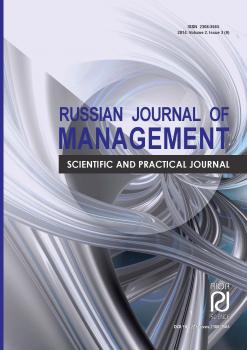The evolution of cooperation in Lithuanian agriculture during the past century is analysed in the paper. It was found that cooperation has greatly depended on farming conditions, traditions of communication, state policy with respect to the development of agriculture and cooperation, and various economic conditions. Particularly significant are the specific features of development during transition of economic conditions: weak agricultural structures (farmer’s farms, agricultural companies); the domination of share capital in the processing industry and commerce, and the insufficiency of agricultural and foodstuffs markets. The basis of analysis in this paper are the theoretical preconditions for the principles of development of the activity of cooperatives. It was determined that most prospective preconditions for development of cooperation at present and in the near future emphasize the comparitive weight of the cost of production of raw materials, i.e. cooperatives of facilities, realisation, finance and representation of interests.
co-operatives, recast, raw materials, profit, cost
Введение
Теория деятельности кооперативов гласит, что фермерам наиболее целесообразно кооперироваться в таких видах деятельности, при которых в себестоимости изготавливаемых продуктов удельный вес сырья домирирует. В статье исследуется применимость этого положения на примере литовских кооперативов и предложены рациональные принципы их развития.
При развитии экономических и социальных проблем сельского хозяйства огромное значение имеет кооперация. В экономической литературе [1; 2; 5; 7–9] довольно убедительно доказывается, что кооперативы имеют значительные преимущества по сравнению со всеми другими видами инфраструктуры производителей продукции сельского хозяйства. Это преимущество заключается в том, что мобилизация инициативы фермеров и их ресурсов намного легче обеспечивает перерабатывающее производство сырьем; кооперативам свойственна значительно большая маневренность и возможность приспособиться к изменяющимся рыночным условиям; они могут успешно удовлетворять или даже создать рынок спроса на свою продукцию, найти свою нишу на рынке; могут накопить собственные ресурсы (например, собственный капитал, который зачастую дешевле, чем приобретенный другим путем). Все это дает кооперативам подлинную независимость, возможность выжить независимо от внешней помощи и конкурировать на соответствующих рынках; стимулирует членов кооперативов специализироваться и производить продукцию особо высокого качества. Кооперация также является очень важной составной частью роста общественного единства на селе, роста инициативы и изобретательности сельских жителей. Таким образом, объединяясь, кооперируясь, крестьяне, фермеры решают не только свои экономические, но также социальные и моральные проблемы.
1. Fahlbeck E. Transaction cost economics, competition and cooperation in agricultural production. Uppsala: Swedish University of Agricultural Sciences, 1996.
2. Marvin A. Schaars, Cooperatives, principles and practices. Madison: University of Wiskonsin, 1980.
3. Nilsson J., Kyriakopoulos K., van Dijk G. Agricultural Co-operatives in the European Union (Current Challenges and Trends) Rural Co-operatives in the Perspective of the Integration with the European Union. Zakopane, 1997. (in English).
4. Parama žemės ūkio produktų perdirbėjams - pagal naująsias taisykles. URL: https://www.nma.lt/index.php/aktualijos/parama-zemes-ukio-produktu-perdirbejams-pagal-naujasias-taisykles/3101.
5. Phillips R. Economic Nature of the Cooperative Association. Journal of Agricultural Cooperation, 1994, vol. 9, p. 67-79.
6. Ramanauskas J. Perspektyviausios kooperatyvų plėtros formos žemės ir maisto ūkyje. Akademija, LŽŪU leidybos centras, 2003 (in Lithuanian).
7. Šalcius P. Teorine ekonomika ir ekonomines minties istorija. Vilnius, 1992.
8. Schmiesing B. H. Theory of Marketing Cooperatives and Decision Making. In: D.W. Cobia, ed. Cooperatives in Agriculture. Englewood Cliffs, NJ: Prentice Hall, 1989, pp. 156-173.
9. Chaianov A. Osnovnyye idei i formy krest´yanskoy kooperatsii [Main ideas and forms of peasant cooperatives]. Moscow, 1919.














